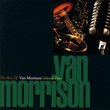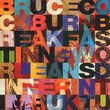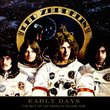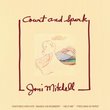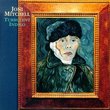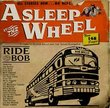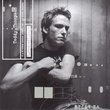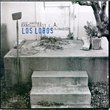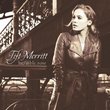| All Artists: Cockburn Bruce Title: Youve Never Seen Everything Members Wishing: 0 Total Copies: 0 Label: co.vi Release Date: 3/24/2009 Album Type: Import Genres: Alternative Rock, Folk, International Music, Jazz, Pop, Rock Styles: New Wave & Post-Punk, North America, Adult Contemporary, Singer-Songwriters, Adult Alternative, Folk Rock Number of Discs: 1 SwapaCD Credits: 1 UPCs: 011661322226, 711297465723 |
Search - Cockburn Bruce :: Youve Never Seen Everything
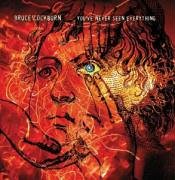 | Cockburn Bruce Youve Never Seen Everything Genres: Alternative Rock, Folk, International Music, Jazz, Pop, Rock Possessed of a creative spirit as restless as his vaunted socio-spiritual conscience, Canadian singer-songwriter Bruce Cockburn took nearly four years to deliver this, his first album of the new millennium. Judging from th... more » |
Larger Image |
CD DetailsSynopsis
Amazon.com Possessed of a creative spirit as restless as his vaunted socio-spiritual conscience, Canadian singer-songwriter Bruce Cockburn took nearly four years to deliver this, his first album of the new millennium. Judging from the rich, challenging musical/topical tapestry that's resulted, it was time well spent. Cockburn's career has been a long (this marks his 27th release) and varied one, wending its way from Christian-oriented folk to the angry agit-prop pop of "If I Had a Rocket Launcher" and beyond, much of it seasoned with musical influences that have ranged from jazz to world-beat. But seldom has Cockburn woven those disparate inspirations into a collection as rewarding as this one. With the eye for detail--and nose for trouble--of a grizzled foreign correspondent, the musician is as unafraid to deliver spoken-word dispatches from the front ("Postcards From Cambodia," the title track's haunting litany of back-page horrors) as he is to wrap the greed-head harangue " Trickle Down" in ironic, percolating jazz or let his voice soar with a rare, naked expressiveness on the beautiful "Everywhere Dance." Sam Phillips and Emmylou Harris add sparkling harmonies to "Tried and Tested" and the hypnotic, cautionary "All Our Dark Tomorrows, respectively, while Cockburn gracefully closes the compelling collection out with gentle reminders ("Don't Forget About Delight," "Messenger Wind") about the importance of human connections both great and small. --Jerry McCulley Similarly Requested CDs
|
CD ReviewsMusic is first rate, but Bruce is stuck. K. Eames | Down in the valley, the valley below | 08/28/2003 (4 out of 5 stars) "I am serious Bruce Cockburn fan. I've seen him several times in concert, and have most of his albums. His music is thoughtful and literate, and it seemlessly crosses genres. His blues cover "Nothin' But a Burnin' Light" and the cover of "Blueberry Hill" are just phenomenal. This album is no exception musically. It has moments of brilliance and turn-it-up-loud good music. However, I found myself noticing that the subject matter, or more precisely Bruce Cockburn's take on that subject matter, has a stagnant feel to it -- as if he's stuck. The rage of "All our Dark Tomorrows" has a rehearsed, obligatory feel to it. This is an anger he's managed to maintain through "The Trouble with Normal", "If I Had a Rocket Launcher", "Call it Democracy" and "Gospel of Bondage." By now, he's said all that he can say about the greed and corruption of power and doesn't add anything new, nor does he offer any solution. The title track "You've Never Seen Everything" has this same quality about evil. His coffeehouse narrative recounts everyday horrors committed by everyday people, but again, there's a stale feel to it. He's said this before, and often through better vehicles (e.g., Grim Travelers, Dancing in Paradise, Down Where the Death Squad Lives). His anger has hardened into a passive bitterness that comes perhaps from seeing too much hopeless misery (as he himself said on "Civilization and its Discontents", too much pathos just makes you angry). If he has any answers, he's not sharing them with us in any substantial way. In short, he emphasizes the Fall at the exclusion of Redemption. Perhaps I am looking for him to offer some expression of redemption, wisdom, and hope even in the face of total depravity, and perhaps that is unfair of me. Bruce Cockburn is at his best when he's personal, reflective, and hopeful. This is where we catch a glimpse of his heart, and it makes the music that much better. My criticisms notwithstanding, it is still a marvelous album." Another Solid Effort J. Ems | Houston, Tx United States | 06/10/2003 (4 out of 5 stars) "Bruce Cockburn has never been a pop artist or one that demands public attention. But, unfortunately he should be. Cockburn sings his conscious and brings to light those things that people would rather be kept dark. You would think the way people love watching reality shows that Cockburn would be more popular. Cockburn melds excellent folk/rock guitar with reggae, rock, jazz or world beat rhythms in order to make his real life observances more palatable. Whether singing of distant far off lands of brutal regimes "You've Never Seen Everything" and "Postcards from Cambodia" or one's closer to home "Trickle Down" the man sees the truth we should all see but either are ignorant of, or worse elect to ignore. I guess some would enjoy his rough Audio paintings but can't complete the circle when he tries to make sense of it all and provide the answers in "Wait no More" or "Celestial Horses". I have never heard anyone sing of love so honestly or earnestly. So many people look for answers in the wrong places, Cockburn leads us into the dark but at least has the decency of showing us where the light switch is. Another fine effort from this eclectic artist which ranks up among his best work. As a Cockburn fan this is a must...As a person just starting their journey of enlightenment you might be better served with starting with Breakfast in New Orleans and working their way back in his catalog before appreciating this tapestry of beauty." A Rewarded Listening benjamin | USA | 01/14/2005 (4 out of 5 stars) "This album is a difficult one that has taken me well over a year to get into. The excursions into world beat that were present on Cockburn's last album, "Breakfast in New Orleans, Dinner in Timbuktu", are here thrown into overdrive and one is left with a very world-oriented folk album. It is a rather left-of-center departure given his work over the last decade and its unexpectedness is likely to leave more than one listener scratching her/his head wondering what exactly Cockburn is doing.
It isn't just world beat that Cockburn uses in considerable doses on this album; jazz-esque dissonance shows up on songs such as "Trickle Down" and "Don't Forget About Delight". The latter has just enough dissonance to be memorable and even hummable; the stripped-down-jam feel of "Trickle Down", however, suffers from a lack of melody. Cockburn seems to have spent far more time working on the music itself on this album and less time on his own vocal instrumentation; the musicianship is absolutely stellar, but a bit more singing than spoken word would have been appreciated by this listener. Nonetheless, songs such as "Open" and "Put it in Your Heart" are genuinely refreshing folk-rock songs, while "Celestial Horses" and "Messenger Wind" show Cockburn in a more traditional, stripped-back role. Cockburn remains a master of the poetic. He is certainly one of the greatest poet-lyricists alive today, inhabiting a sphere entirely his own. The lyrics on this album are just as stunning as any of his prior releases and are worth reading in addition to listening to just for the sake of taking all of Cockburn in. Cockburn is well-known for his own socio-political commentary, as well as for the role that a rather left-wing Christianity takes in informing Cockburn's worldview. It also seems that he has been spending a bit of time studying Sufism, given the liner notes (by no means a bad thing!); the influence of both of these pervade the lyrics. Cockburn's albums tend to be rather thick - perhaps "dense" is a better word - and this album is no exception. Yet, it seems to be far more tightly wound than any of his more recent work. To get into the core - the kernel - of it one must listen to it repeatedly; only upon repeated listens do the musical and lyrical subtleties begin to emerge. It is a truly rich kernel, though; the meat of this album takes time to get to but to finally reach that point is sweet. Let Cockburn take you there." |

